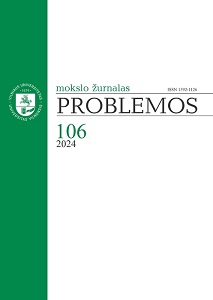Aristotle and the Problem of Universal Accessibility in Leisure
Aristotle and the Problem of Universal Accessibility in Leisure
Author(s): Lianchong DengSubject(s): History of Philosophy, Ethics / Practical Philosophy, Social Philosophy, Ancient Philosphy
Published by: Vilniaus Universiteto Leidykla
Keywords: Aristotle; Leisure; Soul; Moral psychology;
Summary/Abstract: Leisure is both a necessary precondition for, and the ultimate purpose of, human activities. As such, it is commonly understood as a state of contemplation practiced for its own sake. However, this view raises a problem regarding its universal accessibility. Aristotle’s ethical and political theories demand leisure as a universally embraced way of life, while contemplative leisure appears impractical for common people. There are broadly two approaches to fix this problem: (a) distinguishing leisure of two sorts, and (b) expanding the semantic scope of contemplation. Nevertheless, they both come with certain limitations. I propose redefining leisure as a moral-psychological concept aligned with the allegedly hexis-state of the soul. This redefinition presents leisure as a basic human condition, offering a possible solution to the problem of its universal accessibility.
Journal: Problemos
- Issue Year: 2024
- Issue No: 106
- Page Range: 22-35
- Page Count: 14
- Language: English

